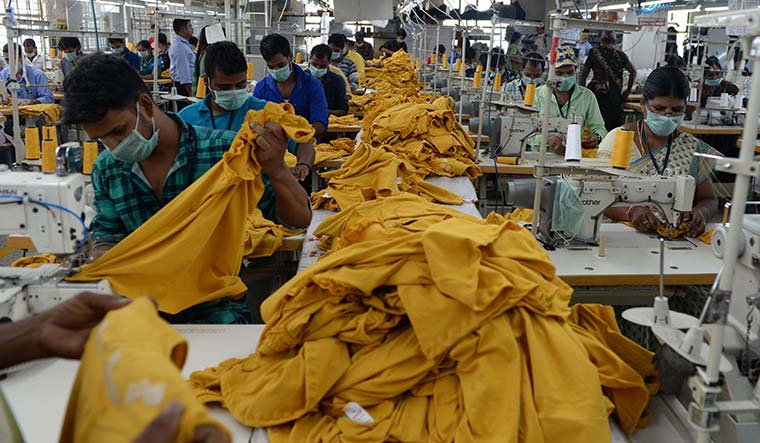The COVID-19 pandemic led to nationwide lockdowns and for over a year now, many people are working from home. Public gatherings and family functions, too, have been limited. Which means far lesser need to shop for new clothes. All these has had an impact on the readymade garment industry. Just when things had begun recovering post September 2020 and looked to getting back to pre-COVID levels, the second wave of COVID-19 struck, forcing various states to announce fresh lockdowns. It is going to delay the recovery in the sector.
Domestic demand accounts for almost three quarters of overall demand and the second wave coupled with the fresh curbs in various states may have pushed the recovery to pre-pandemic levels by at least a year, feels ratings agency CRISIL.
Last financial year, sales contracted 24 per cent. Due to the second wave, which has “unstitched demand,” CRISIL sees readymade garment sector growing at 15-20 per cent in the current financial year, which is almost half of the 28-33 per cent growth expected earlier.
“The first quarter of this fiscal will be a near-washout, with most domestic brick-and-mortar stores shut, and sales through e-commerce channels curbed. The second wave has also hit hinterland, affecting sales of value or affordable garments, which is the fastest growing segment,” said Hetal Gandhi, director, CRISIL Research.
Even as the readymade garment companies are facing speed bumps in the domestic market, exports, which account for 26 per cent of the revenue pie, have been healthy, thanks to improving discretionary spending in Europe and US, which together account for 60 per cent of India's readymade garment exports, said CRISIL. It expects 18-22 per cent growth in export demand in the year ending March 2022, compared with a 16 per cent contraction in the previous year.
It is the healthy export demand that will drive much of the 15-20 per cent revenue growth this year, in turn supporting the operating leverage of the readymade garment makers.
CRISIL expects operating profits of these companies to improve 75-100 basis points to around 5.5-6.0 per cent, although it will still be lower than the 8-9 per cent level seen between 2016-2019 financial years.
Reduced promotions and travel expenses due to the pandemic should also support profitability this year, added the ratings agency.
“The credit ratio (ratio of rating upgrades to downgrades), which was 0.16 last fiscal, should improve this fiscal as the credit outlook of readymade garment makers turns stable from negative,” said Kiran Kavala, associate director, CRISIL Ratings.
As the demand conditions improve compared with the previous financial year, the working capital position of readymade garment makers is also expected to rebound close to pre-pandemic levels. Prudent inventory management will also help here.
However, CRISIL also warns that if the lockdowns get extended beyond the first quarter, there will be an impact on sales of these companies. Any resurgence of COVID-19 infections in major export markets of these companies will also have to be watched out for, it added.





